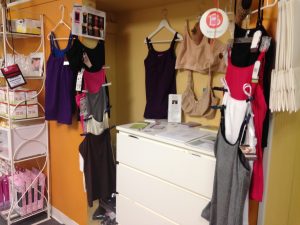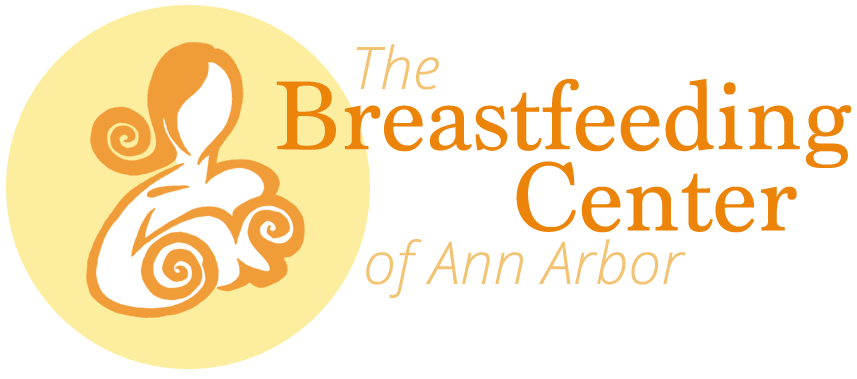How do you know you are ready for breastfeeding? Would a breastfeeding check list have helped?
 What do we mean by “breastfeeding check list”? While we don’t have a lot of research on many aspects of breastfeeding one thing that has been studied is what factors seem to lead to families to being able to meet their breastfeeding goals.
What do we mean by “breastfeeding check list”? While we don’t have a lot of research on many aspects of breastfeeding one thing that has been studied is what factors seem to lead to families to being able to meet their breastfeeding goals.
Here are some things on our breastfeeding check list that might have helped:
1. Setting up your team
Family and friends
If you want to breastfeed, making sure that all of the main players in your life are at least positive about breastfeeding is key. Research shows when partners are supportive of breastfeeding families have greater success.
If you come from a breastfeeding family or lots of your friends have breastfed, that helps as well. Surrounding yourself with these people can be great if they are enthusiastic about your goals. However, if you come from a family or have friends that ARE NOT breastfeeding friendly, you may consider not spending a lot of time with them while you are getting started. Positivity and support helps.
Your health care team
 Make sure your doctors or midwives are all on board with breastfeeding! Some questions to ask your future midwife, OB, family practice doctor, and/or pediatrician:
Make sure your doctors or midwives are all on board with breastfeeding! Some questions to ask your future midwife, OB, family practice doctor, and/or pediatrician:
1. How long should you breastfeed? This answer should be exclusively for at least six months and then at least one year (AAP recommendation) or for at least two years (World Health Organization recommendation).
2. Where can I find local breastfeeding support? They should be able to tell you some IBCLCs in the area and at least one support group.
3. What if I have medication and breastfeeding questions? They should be using Lactmed, the Infant Risk Center, or Thomas Hale’s Medications and Mother’s Milk
You would also like to find a hospital that is breastfeeding supportive. Finding out their policies on skin to skin contact, what kinds of lactation support they provide, and if they are a Baby Friendly hospital are some great questions.
Breastfeeding specific support
Knowing who you can reach out to if you are having trouble makes it easier if trouble comes your way. For basic help, a little pain, feeling awkward with latching, you can get help from many places, your friends or family, your doctors office, maybe an out patient setting at the hospital, but if you are having major trouble, pain that is causing visible damage or not going away, babies who aren’t latching, needing to use bottles to keep the baby fed, needing to use formula, then you need someone who really knows what they are doing. I am often the 2nd, 3rd, 4th, and even 5th lactation consultation that people have seen. There are answers for breastfeeding problems! Ask around your area to find out who is really helping families reach their breastfeeding goals. If you are in our area, we would suggest, well, us!
2. Stuff
 You don’t need much for breastfeeding! If you know you are going back to work in the first four months or so, go a head and get your breast pump from your insurance company. We are especially fond of the Spectra 1 and 2 and have no financial incentive to recommend this pump. You don’t need a boppy or other special pillow. Try the ones in your home. Bed pillows are great nursing pillows. Or just lean back in a laid back position and let your baby rest on your body. Organic coconut oil is our favorite nipple cream. You might already own this! A few disposable nursing pads are great as well. Getting 2-3 nursing bras or tank tops while you are still pregnant can help tremendously. Getting fitted around 37 weeks by someone who knows what they are doing in our suggestion. Some people love a good nursing glider but make sure it really fits your body. If you are short, you might like a nursing stool as well. So just a few things to get you started!
You don’t need much for breastfeeding! If you know you are going back to work in the first four months or so, go a head and get your breast pump from your insurance company. We are especially fond of the Spectra 1 and 2 and have no financial incentive to recommend this pump. You don’t need a boppy or other special pillow. Try the ones in your home. Bed pillows are great nursing pillows. Or just lean back in a laid back position and let your baby rest on your body. Organic coconut oil is our favorite nipple cream. You might already own this! A few disposable nursing pads are great as well. Getting 2-3 nursing bras or tank tops while you are still pregnant can help tremendously. Getting fitted around 37 weeks by someone who knows what they are doing in our suggestion. Some people love a good nursing glider but make sure it really fits your body. If you are short, you might like a nursing stool as well. So just a few things to get you started!
3. Prenatal education
Don’t rely on the internet
I can not stress this enough! There is so much miss-information or information that does not apply to you and your baby! If you are looking for good information we do suggest kellymom.com but once the baby comes and if you are having trouble, a good IBCLC is worth every penny.
Some books
La Leche League’s The Womanly Art of Breastfeeding or Breastfeeding Made Simple are two of my favorite’s. The Nursing Mother’s Companion is also a great one. These books emphasis what is normal. If you go off roading, please get professional help!
Prenatal breastfeeding class
Research shows taking a prenatal breastfeeding class is one of the very best things you can do to help get ready to breastfeeding.
 The breastfeeding relationship combines instinct and learned skills. This class focuses on the first critical weeks of your baby’s life and provides basic information and resources to prepare the mother-to-be for a satisfying breastfeeding experience. Since family support is a key factor in a positive breastfeeding experience, partners are also encouraged to attend. Listen to our podcast for more information!
The breastfeeding relationship combines instinct and learned skills. This class focuses on the first critical weeks of your baby’s life and provides basic information and resources to prepare the mother-to-be for a satisfying breastfeeding experience. Since family support is a key factor in a positive breastfeeding experience, partners are also encouraged to attend. Listen to our podcast for more information!
Breastfeeding is the very best thing you can do nurture your baby. Learn all the basics to get off to a great start with breastfeeding. Knowledge is power! Topics include:
In our breastfeeding classes, we cover:
- How you make breastmilk
- The benefits of skin to skin contact
- How to tell if your baby is getting enough breastmilk
- The basics of latching and positioning
- We always have a breastfeeding mother come to our classes. Seeing is believing!
- And of course, we always have time for questions.
4. Commitment
Many times in the beginning breastfeeding does not go easily. Being committed for a certain amount of time, I would suggest at least 8 weeks, can help. Why eight weeks? Because time is your friend with breastfeeding often things that were issues in the beginning fad away as time goes by.
However, this doesn’t mean you should sit with problems. If you are in pain that is more than a quick “oh!” at latch, is increasing or not getting better, or have visible damage, this is out of the range of normal. Get help! If you are needing to use any formula as a transitional tool, get help! If you are needing to express your milk and feed it to the baby because of latching issues, get help!
Breastfeeding problems usually have solutions but you might need an experienced set of eyes to help you out. Don’t be ashamed, many of us needed help!
5. Watch other families actually nurse
 If you were lucky enough to grow up in a family or culture where everyone breastfeeds you will most likely have an easier time with breastfeeding. If you didn’t, consider finding a support group prenatally. Our weekly, free, drop in support group is open to all nursing families. Le Leche League is also a great place to go prenatally. Watching babies nursing is a powerful way to connect to other families and learn about what breastfeeding really looks like.
If you were lucky enough to grow up in a family or culture where everyone breastfeeds you will most likely have an easier time with breastfeeding. If you didn’t, consider finding a support group prenatally. Our weekly, free, drop in support group is open to all nursing families. Le Leche League is also a great place to go prenatally. Watching babies nursing is a powerful way to connect to other families and learn about what breastfeeding really looks like.
So, what do you think? How many of these were in place for you? Do you think having these in place would have helped? Could a check list have been helpful?
